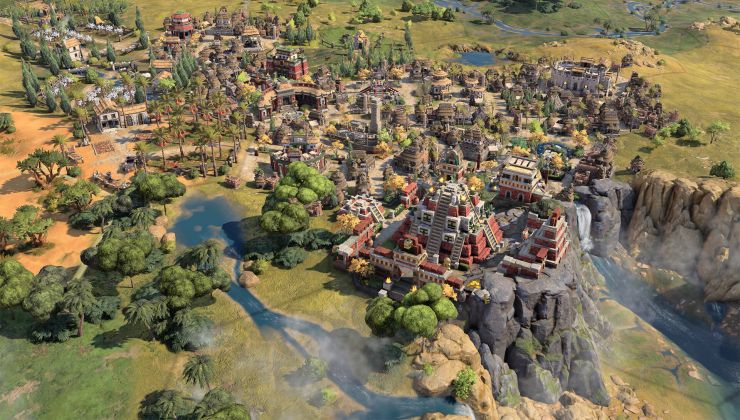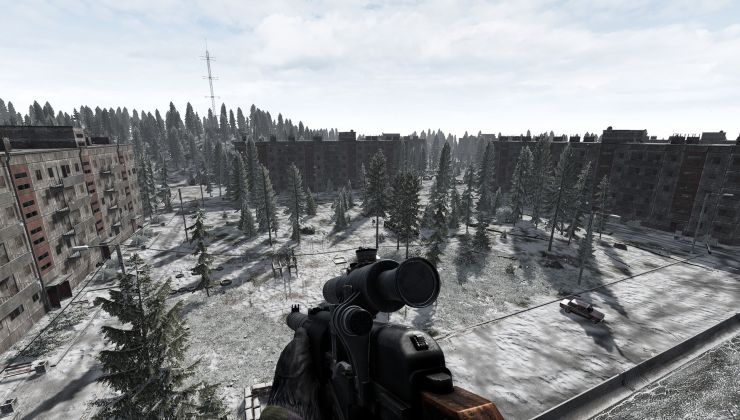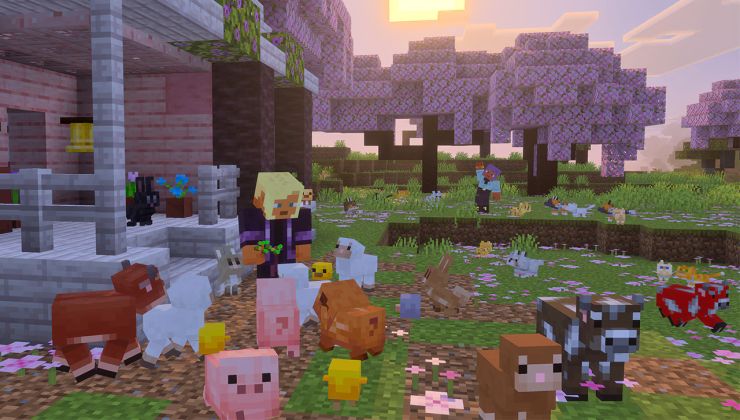Valve has written up a short blog post going over how their Steam Next Fest has improved things for developers, and it seems by a huge amount in some cases.
For users who haven't seen one before, Steam Next Fest is a regular event Steam now runs a few times a year, that gives developers some extra time in the spotlight. Developers can offer up limited-time demos, do livestreams and talks - all in the name of pulling in more wishlists and sales.
So how has it all been going? Very well overall, according to the latest data from Valve.
Compared with the events in 2020, there's been a huge jump in the amount of wishlists for developers. Wishlists are an essential marketing tool, since it's a way for developers to remind users their game has released or is on sale and hopefully convert them into actual sales. Valve notes that there's a few reasons why 2021 has done so much better, including a change to their rules that mean developers can only enter once per-game, so Valve thinks developers have taken a bit more time to be ready — makes sense.
The big question really though is how has the event increased sales for developers? Valve checked the data for games that have actually released since the festival, noting that the "median released game saw an increase of 500% in 'converting wishlists' made during Next Fest compared to converting wishlist additions made in the two weeks leading to Next Fest".
None of it is surprising. Marketing is hard, even harder each year with more games releasing and advertising space is limited. Player time and money is a limiting factor too, so having a big splash where you let users try out the game first direct from Steam is a great idea when previously a lot of events like this were only done in-person.
Quoting: pbImpossible, everyone knows that valve is doing nothing but taking the 30% cut for no reason whatsoever. :tongue:In Tim Sweeney's imaginary universe. :grin:
I've definitely bought a few games after trying their demos at previous Next Fests (Webbed and Per Aspera, off the top of my head, and I'm waiting for Terraformers to release).
Quoting: PhiladelphusWow, having demos available increases sales?!? Who'd've thunkit?? :tongue:Oh, Terraformers had a Next Fest demo? What's it like?
I've definitely bought a few games after trying their demos at previous Next Fests (Webbed and Per Aspera, off the top of my head, and I'm waiting for Terraformers to release).
Quoting: Purple Library GuyIt plays lot like a boardgame (it even has even theme common with Terraforming Mars). You basically build improvements, more cities and balance between different kind of resources.Quoting: PhiladelphusWow, having demos available increases sales?!? Who'd've thunkit?? :tongue:Oh, Terraformers had a Next Fest demo? What's it like?
I've definitely bought a few games after trying their demos at previous Next Fests (Webbed and Per Aspera, off the top of my head, and I'm waiting for Terraformers to release).
PS: prologue doesn't seem to be time limited: https://store.steampowered.com/app/1557040/Terraformers_First_Steps_on_Mars/
Last edited by Anza on 2 Dec 2021 at 7:55 pm UTC
Shame they didn't call it Steam Demo-nic Festivals, but oh well.
Woodland Empire has interesting premise, though based on demo it still has long way to go. I'm just interested in nature simulations. Demo is still available.
Neverlooted Dungeon is immersive simulation starting more from the interaction with objects perspective. Somehow it has managed to make the interactions somewhat natural, so opening chests needs bit more effort than just pressing the interaction button. Demo is still available in case you're interested.
There are few others that might be interesting, but didn't cause enough reaction for me actually to wishlist. Maybe if I would have found time to try them bit more when the demos were actually available.
Quoting: riidomDoes Valve know what a median is? Because this white line in that graph does not look like one to me. Which leads me to wanting to see their calculations on the 30% cut. Maybe there is a mistake too and it should have been 50% all the time!I think the bars are the median increase for each event, and the white line is not the median of the bars but the median for all events combined.
Quoting: eldakingMaybe but it really feels like it's actually the mean or something.Quoting: riidomDoes Valve know what a median is? Because this white line in that graph does not look like one to me. Which leads me to wanting to see their calculations on the 30% cut. Maybe there is a mistake too and it should have been 50% all the time!I think the bars are the median increase for each event, and the white line is not the median of the bars but the median for all events combined.
Quoting: Purple Library GuyOh, Terraformers had a Next Fest demo? What's it like?I found it quite engaging, to the point where I went back to play it probably some 20-30 times by now (the demo is a 30-turn limited slice of the gameplay). It's definitely got a very board game-like feel to it; you play in turns which are one Martian year long, and each turn you get production of resources and your choice of two "projects" (basically buildings, though some can be built in cities and some can be built on the surface of the planet). Some turns also have random events that can get you extra free resource production or an additional project or stuff like that. The game is a fun balance of building things to increase your resource production, with one resource being the happiness of your people, who come to expect more of it over time as Mars becomes more terraformed. Terraforming buildings are in the demo, but they have fairly long-term effects such that there's not much point to building them with only 30 turns, and while that limit makes for fairly quick games (<1 hour), I'm really keen to get a longer game like 100–200 turns (not sure what the optimum length will be) where the terraforming has a chance to stretch its legs and I can actually spread cities over more than just ~1/10 of the planet.
Quoting: PhiladelphusWell, maybe I'll wishlist that.Quoting: Purple Library GuyOh, Terraformers had a Next Fest demo? What's it like?I found it quite engaging, to the point where I went back to play it probably some 20-30 times by now (the demo is a 30-turn limited slice of the gameplay). It's definitely got a very board game-like feel to it; you play in turns which are one Martian year long, and each turn you get production of resources and your choice of two "projects" (basically buildings, though some can be built in cities and some can be built on the surface of the planet). Some turns also have random events that can get you extra free resource production or an additional project or stuff like that. The game is a fun balance of building things to increase your resource production, with one resource being the happiness of your people, who come to expect more of it over time as Mars becomes more terraformed. Terraforming buildings are in the demo, but they have fairly long-term effects such that there's not much point to building them with only 30 turns, and while that limit makes for fairly quick games (<1 hour), I'm really keen to get a longer game like 100–200 turns (not sure what the optimum length will be) where the terraforming has a chance to stretch its legs and I can actually spread cities over more than just ~1/10 of the planet.
Quoting: Purple Library GuyWell, maybe I'll wishlist that.So I just realized the Terraformers: First steps on Mars free "prologue" released a few days ago, and having given it a go it's basically like the demo (a 30-turn limited game) with some updates and differences (you used to be able to sell resources to get money which you in turn could use to buy resources, now all trading is strictly between resources, and is limited per-turn by the number of "trade routes" you have, how you build on the planet is a little more constrained, some rebalancing, etc.). You could check it out to see if you want the full game.










 How to setup OpenMW for modern Morrowind on Linux / SteamOS and Steam Deck
How to setup OpenMW for modern Morrowind on Linux / SteamOS and Steam Deck How to install Hollow Knight: Silksong mods on Linux, SteamOS and Steam Deck
How to install Hollow Knight: Silksong mods on Linux, SteamOS and Steam Deck